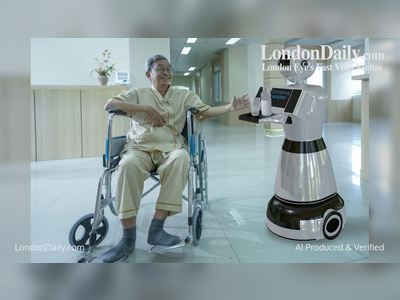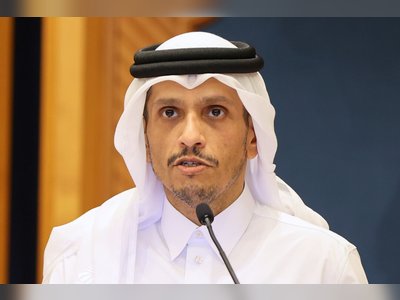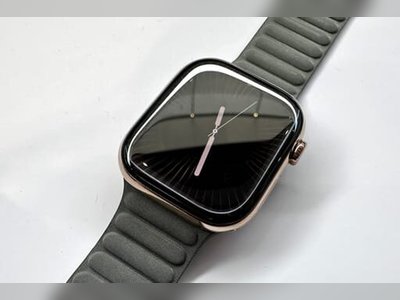UK Universities Face Challenges from Deepfake Applicants in Automated Interviews
Enroly reports instances of deepfake technology being used by applicants in automated admissions processes.
British universities are increasingly employing automated systems for interviewing international students, prompting concerns over the emergence of deepfake applicants.
Enroly, a software platform utilized by various universities to streamline application processes, reported that it had encountered instances of candidates employing deepfake technology to manipulate their online interviews.
A deepfake consists of artificial intelligence-generated media that can convincingly alter a person's appearance or voice.
This allows individuals to either enhance their perceived fluency in a second language or obscure the fact that responses are being provided by someone other than the actual applicant.
Thus far, Enroly disclosed that approximately 30 cases of deepfake usage were detected out of 20,000 interviews conducted during the January 2023 intake.
The company characterized these cases as indicative of a growing trend in technological fraud, noting that deepfake incidents account for about 0.15% of the total interviews but suggest that the method is a significant concern moving forward.
Phoebe O’Donnell, head of services at Enroly, emphasized the challenges deepfakes pose for interview assessors, describing the technology as reminiscent of spy fiction.
O'Donnell stated that while detection of such deception is difficult, it is not impossible.
Enroly claims to employ advanced detection techniques, including facial recognition and passport matching systems, to mitigate fraud risks.
Last year, a notable deepfake incident involved the CEO of WPP, a major advertising conglomerate, who became the target of an elaborate scam that utilized an AI-generated voice and video replica in a conference call.
In its analysis of the automated interviews conducted, Enroly noted that 1.3% of the interviews exhibited signs of 'outright deception', with traditional fraudulent methods such as impersonation and off-camera support being more prevalent compared to deepfake technology.
Automated interviews are becoming a standard approach among UK universities to assess international applicants prior to the issuance of the Confirmation of Acceptance for Studies (CAS) certificate, necessary for students to secure visas.
These automated processes enable candidates to respond to a series of randomly selected questions online, which are then reviewed by university admissions personnel.
Responses flagged as questionable or inadequate may trigger further investigation, including a live interview.
The UK’s higher education institutions must diligently vet international applicants, as failure to comply with standards set by UK Visas and Immigration (UKVI) can jeopardize their licensing to sponsor international students.
This scrutiny has intensified as universities move towards using more efficient automated methods for assessing applicants, thus balancing speed and thoroughness in their admissions processes.
Enroly, a software platform utilized by various universities to streamline application processes, reported that it had encountered instances of candidates employing deepfake technology to manipulate their online interviews.
A deepfake consists of artificial intelligence-generated media that can convincingly alter a person's appearance or voice.
This allows individuals to either enhance their perceived fluency in a second language or obscure the fact that responses are being provided by someone other than the actual applicant.
Thus far, Enroly disclosed that approximately 30 cases of deepfake usage were detected out of 20,000 interviews conducted during the January 2023 intake.
The company characterized these cases as indicative of a growing trend in technological fraud, noting that deepfake incidents account for about 0.15% of the total interviews but suggest that the method is a significant concern moving forward.
Phoebe O’Donnell, head of services at Enroly, emphasized the challenges deepfakes pose for interview assessors, describing the technology as reminiscent of spy fiction.
O'Donnell stated that while detection of such deception is difficult, it is not impossible.
Enroly claims to employ advanced detection techniques, including facial recognition and passport matching systems, to mitigate fraud risks.
Last year, a notable deepfake incident involved the CEO of WPP, a major advertising conglomerate, who became the target of an elaborate scam that utilized an AI-generated voice and video replica in a conference call.
In its analysis of the automated interviews conducted, Enroly noted that 1.3% of the interviews exhibited signs of 'outright deception', with traditional fraudulent methods such as impersonation and off-camera support being more prevalent compared to deepfake technology.
Automated interviews are becoming a standard approach among UK universities to assess international applicants prior to the issuance of the Confirmation of Acceptance for Studies (CAS) certificate, necessary for students to secure visas.
These automated processes enable candidates to respond to a series of randomly selected questions online, which are then reviewed by university admissions personnel.
Responses flagged as questionable or inadequate may trigger further investigation, including a live interview.
The UK’s higher education institutions must diligently vet international applicants, as failure to comply with standards set by UK Visas and Immigration (UKVI) can jeopardize their licensing to sponsor international students.
This scrutiny has intensified as universities move towards using more efficient automated methods for assessing applicants, thus balancing speed and thoroughness in their admissions processes.











